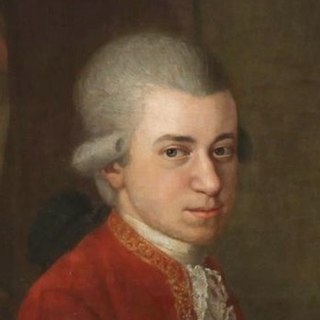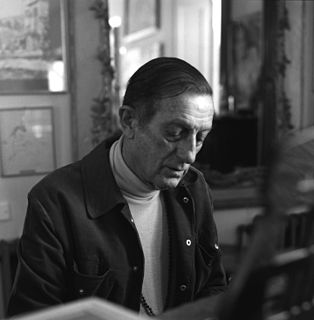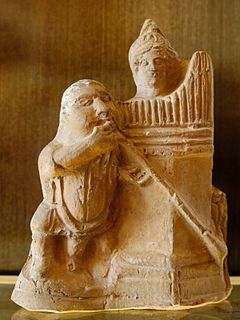This article is being considered for deletion in accordance with Wikipedia's deletion policy. Please share your thoughts on the matter at this article's deletion discussion page. |
List of classical music pieces which inspired or are mentioned explicitly in literature.

Owing to India's vastness and diversity, Indian Music encompass numerous genres, multiple varieties and forms which include classical music, folk (Bollywood), rock, and pop. It has a history spanning several millennia and developed over several geo-locations spanning the sub-continent. Music in India began as an integral part of socio-religious life.

Romantic music is a stylistic movement in Western Classical music associated with the period of the 19th century commonly referred to as the Romantic era. It is closely related to the broader concept of Romanticism—the intellectual, artistic and literary movement that became prominent in Europe from approximately 1800 until 1910.
Genre is any form or type of communication in any mode with socially-agreed-upon conventions developed over time. In popular usage, it normally describes a category of literature, music, or other forms of art or entertainment, whether written or spoken, audio or visual, based on some set of stylistic criteria, yet genres can be aesthetic, rhetorical, communicative, or functional. Genres form by conventions that change over time as cultures invent new genres and discontinue the use of old ones. Often, works fit into multiple genres by way of borrowing and recombining these conventions. Stand-alone texts, works, or pieces of communication may have individual styles, but genres are amalgams of these texts based on agreed-upon or socially inferred conventions. Some genres may have rigid, strictly adhered-to guidelines, while others may show great flexibility.
Neoclassical or neo-classical may refer to:

A composer is a person who writes music, especially classical music in any form, including vocal music, instrumental music, electronic music, and music which combines multiple forms. A composer may create music in any music genre, including, for example, classical music, musical theatre, blues, folk music, jazz, and popular music. Composers often express their works in a written musical score using musical notation.

Indian classical music is the classical music of the Indian subcontinent. It has two major traditions: the North Indian classical music tradition is called Hindustani, while the South Indian expression is called Carnatic. These traditions were not distinct until about the 16th century. During the period of Mughal rule of the Indian subcontinent, the traditions separated and evolved into distinct forms. Hindustani music emphasizes improvisation and exploration of all aspects of a raga, while Carnatic performances tend to be short composition-based. However, the two systems continue to have more common features than differences.
Classical may refer to:

Classical mythology, Classical Greco-Roman mythology, Greek and Roman mythology or Greco-Roman mythology is both the body of and the study of myths from the ancient Greeks and Romans as they are used or transformed by cultural reception. Along with philosophy and political thought, mythology represents one of the major survivals of classical antiquity throughout later Western culture. The Greek word mythos refers to the spoken word or speech, but it also denotes a tale, story or narrative.

The music of Iran encompasses music that is produced by Iranian artists. In addition to the traditional folk and classical genres, it also includes pop and internationally celebrated styles such as jazz, rock, and hip hop.
Indian classical dance is an umbrella term for various performance arts rooted in musical theatre styles, whose theory and practice can be traced to the Sanskrit text, Natyashastra . The number of classical dances range from eight to more, depending on the source and scholar. The Sangeet Natak Academy recognizes eight – Bharatanatyam, Kathak, Kuchipudi, Odissi, Kathakali, Sattriya, Manipuri and Mohiniyattam. Scholars such as Drid Williams add Chhau, Yakshagana and Bhagavata Mela to the list. Additionally, the Indian Ministry of Culture includes Chhau in its classical list. These dances are traditionally regional.They consist of compositions in Telugu, Tamil, Sanskrit, Kannada, Hindi, or any other Indian language and they represent a unity of core ideas in a diversity of styles, costumes and expression. At present officially there are 9 classical dances in India.

Alain Daniélou was a French historian, intellectual, musicologist, Indologist, and a noted Western convert to and expert on Shaivite Hinduism.
Islamic culture and Muslim culture refer to cultural practices common to historically Islamic people. The early forms of Muslim culture, from the Rashidun Caliphate to early Umayyad period and early Abbasid period, were predominantly Arab, Byzantine, Persian and Levantine. With the rapid expansion of the Islamic empires, Muslim culture has influenced and assimilated much from the Persian, Egyptian, Caucasian, Turkic, Mongol, Indian, Bangladeshi, Pakistani, Malay, Somali, Berber, Indonesian, and Moro cultures.

The Sangam literature historically known as 'the poetry of the noble ones' connotes the ancient Tamil literature and is the earliest known literature of South India. The Tamil tradition and legends link it to three literary gatherings around Madurai and Kapāṭapuram : the first over 4,440 years, the second over 3,700 years, and the third over 1,850 years before the start of the common era. Scholars consider this Tamil tradition-based chronology as ahistorical and mythical. Most scholars suggest the historical Sangam literature era spanned from c. 300 BCE to 300 CE, while others variously place this early classical Tamil literature period a bit later and more narrowly but all before 300 CE. According to Kamil Zvelebil – a Tamil literature and history scholar, the most acceptable range for the Sangam literature is 100 BCE to 250 CE, based on the linguistic, prosodic and quasi-historic allusions within the texts and the colophons.

A salpinx was a trumpet-like instrument of the ancient Greeks.
Ramanlal C. Mehta was an Indian musician and musicologist. In 2009, he was awarded the Padma Bhushan, India's third-highest civilian honour.

The Oxford Companion to Music defines music criticism as "the intellectual activity of formulating judgments on the value and degree of excellence of individual works of music, or whole groups or genres". In this sense, it is a branch of musical aesthetics. With the concurrent expansion of interest in music and information media over the past century, the term has come to acquire the conventional meaning of journalistic reporting on musical performances.

Classical music is art music produced or rooted in the traditions of Western culture, including both liturgical (religious) and secular music. Historically, the term 'classical music' refers specifically to the musical period from 1750 to 1820. In a more general sense classical music refers to Western musical traditions considered to be apart from or a refinement of western folk music traditions and encompasses the broad span of time from before the 6th century AD to the present day, which includes the Classical period and various other periods. The central norms of this tradition became codified between 1650 and 1900, which is known as the common-practice period.
Paszport Polityki is an annual Polish cultural award presented by the weekly magazine Polityka since 1993.

Kabi Samrata Upendra Bhanja (born during 1670 at Kullada, Ghumusara a princely state in Bhanjanagar, 80 km from Berhampur city in south of Odisha and died during 1740 was considered as the greatest poet of Odia Literature and was awarded the title "Kabi-Samrata" – "The Emperor of Poets". Born in a royal family, Upendra Bhanja had never eyed for throne.

Pandit is a person with specialised knowledge or a teacher of any field of knowledge in Hinduism, particularly the Vedic scriptures, dharma, Hindu philosophy, or other subjects such as music.